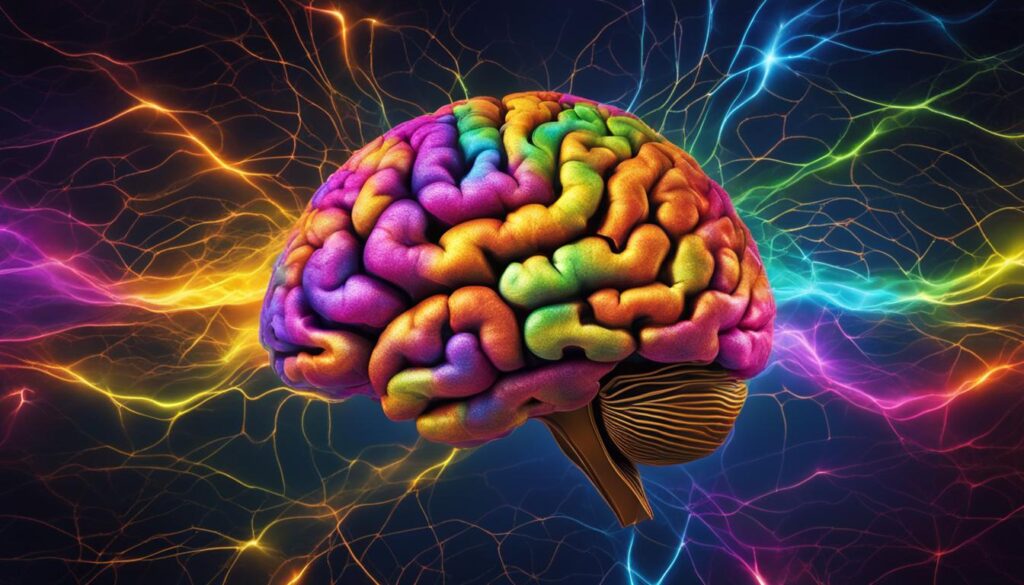Money is often seen as one of the key determinants of happiness. Many believe that having more money leads to higher life satisfaction and overall well-being. But is it as simple as that? In this article, we will delve into the complex relationship between money and life satisfaction, exploring the findings from “The Happiness Equation” by Nick Powdthavee and other rigorous studies conducted by experts in this field.
By examining the science behind happiness and measuring its impact, we hope to gain a deeper understanding of how money truly affects our happiness levels. It’s not just about the numbers in our bank account, but the internal factors and psychological aspects that come into play as well.
Join us as we uncover the various dimensions of this intriguing topic, highlighting the role of money in determining happiness. Discover the factors that contribute to overall well-being, and learn how to make informed decisions that can lead us towards a more fulfilling and contented life.
Key Takeaways:
- Happiness levels are influenced by a complex interplay of factors, including money, internal factors, and social comparisons.
- Measuring happiness can be challenging due to its intangible nature, but rigorous research methods provide valuable insights.
- Internal factors such as brain activity and personality traits play a significant role in determining happiness levels.
- While higher income is generally associated with higher life satisfaction, other factors like relative income and adaptation to circumstances must be considered.
- Understanding the relationship between money and life satisfaction can help us make informed choices that enhance our overall well-being.
The Science Behind Happiness
The field of behavioral economics, combined with research on the psychology of happiness, has provided valuable insights into understanding happiness. One notable work in this field is Nick Powdthavee’s book, “The Happiness Equation,” which delves into the subject by offering nine secrets to achieving happiness based on rigorous research.
Behavioral economics, a subfield of economics that incorporates insights from psychology, acknowledges that individuals do not always make rational decisions and that our behavior is influenced by various cognitive biases. It explores how these biases impact our decision-making processes, including those related to happiness and well-being.
“In ‘The Happiness Equation,’ Powdthavee compiles years of research across multiple disciplines to decipher what truly makes us happy. Through rigorous research, he uncovers the complexities of human behavior and provides actionable insights for greater well-being.”
Rigorous research in this field has revealed fascinating connections between our behaviors, economic choices, and our overall happiness levels. By understanding the science behind happiness, we can gain a better insight into the factors that influence our well-being and make informed decisions to improve our quality of life.
Behavioral Economics and Happiness
Behavioral economics explores how our attitudes and behaviors shape our happiness levels. It recognizes that individuals’ preferences and decision-making processes are influenced by psychological factors, which can deviate from traditional economic assumptions.
For example, behavioral economics considers the impact of present bias, where individuals prioritize short-term gratification over long-term well-being. This bias can lead to suboptimal financial decisions, affecting overall happiness in the long run.
The Psychology of Happiness
The psychology of happiness examines the internal factors and individual differences that contribute to our well-being. It delves into the role of personality traits, cognitive processes, and emotional states in shaping our happiness levels.
Research in this field has revealed that individuals with certain personality traits, such as optimism, resilience, and gratitude, tend to experience higher levels of happiness. Additionally, positive emotions and a sense of purpose contribute significantly to overall well-being.
The integration of behavioral economics and the psychology of happiness allows for a comprehensive understanding of the complex factors that influence our happiness levels. By applying these principles to our own lives, we can make conscious choices that promote greater well-being and fulfillment.
Measuring Happiness
Measuring happiness is a complex endeavor due to its intangible nature. Traditional economists have shown skepticism towards using life satisfaction surveys as a means to measure happiness. However, through the use of statistical methods like ordered probit, insights into measuring happiness levels have emerged. Researchers like Richard McKelvey and William Zavoina have confirmed the reliability of using ordered variables to interpret happiness levels, shedding light on the correlational relationship between money and happiness.
The Correlational Relationship Between Money and Happiness
“Money can’t buy happiness.” – Traditional saying
While it is widely acknowledged that money alone does not guarantee happiness, understanding the correlational relationship between money and happiness is crucial. Studies have shown a positive correlation between income and life satisfaction, indicating that higher income can increase happiness levels to some extent. However, it is necessary to delve deeper into the nuances of this relationship.

| Study | Findings |
|---|---|
| Study 1 | Higher income is associated with increased life satisfaction, but the correlation diminishes beyond a certain point. |
| Study 2 | Relative income plays a significant role – individuals tend to compare their income to others, impacting their happiness levels. |
| Study 3 | The adaptation to circumstances affects how money impacts overall life satisfaction – individuals may adapt to their financial situation over time. |
As shown in the table above, multiple studies point to various factors influencing the relationship between money and happiness. While higher income may initially contribute to increased life satisfaction, the correlation diminishes beyond a certain threshold. Furthermore, the comparison to others and the adaptation to one’s circumstances also shape the impact of money on overall well-being. Therefore, it is important to consider these factors when exploring the complex relationship between money and happiness.
Internal Factors Affecting Happiness
When it comes to happiness, internal factors play a significant role in shaping our overall well-being. The activation of the left side of the brain, personality traits, positive mood, and pro-social behavior all contribute to our happiness levels.
Brain Activity and Emotional Well-being
Studies conducted by Richard Davidson and David Snowdon have shed light on the connection between brain activity and happiness. Their research has found that the activation of the left side of the brain is associated with more positive emotions and increased happiness levels. This suggests that our brain’s activity patterns can have a profound impact on our overall well-being.
“The activation of the left side of the brain is associated with more positive emotions and increased happiness levels.”
Personality Traits and Life Satisfaction
Our personality traits also influence our happiness levels. Research has shown that individuals who possess certain traits, such as extroversion, agreeableness, conscientiousness, and openness to experience, tend to have higher life satisfaction.
“Personality traits such as extroversion, agreeableness, conscientiousness, and openness to experience have been found to correlate with higher life satisfaction.”
Positive Mood and Pro-social Behavior
Maintaining a positive mood is essential for overall happiness and well-being. People who experience positive emotions more frequently are more likely to report higher levels of life satisfaction. Additionally, engaging in pro-social behaviors, such as acts of kindness and helping others, can contribute to a greater sense of happiness and fulfillment.
“Positive mood and pro-social behavior contribute to overall happiness and well-being.”
Understanding these internal factors can empower individuals to take control of their happiness and make positive changes in their lives. By cultivating positive brain activity, embracing favorable personality traits, and fostering a positive mood, individuals can enhance their overall well-being and lead happier lives.

The Role of Money in Happiness
The relationship between income and happiness is a complex one. While research has shown that higher income is generally associated with higher life satisfaction, there are nuances to consider. Studies by Matthew Killingsworth and others have found that the correlation between income and happiness continues to rise with increasing income, and there is no clear threshold at which money stops impacting well-being. However, the relative income and comparison to others play a significant role in determining happiness levels. The adaptation to circumstances also affects how money influences our overall satisfaction with life.
Relative Income and Comparison to Others
When it comes to the relationship between income and happiness, the concept of relative income is crucial. Relative income refers to an individual’s income compared to the income of others in their social and economic circle. Research has shown that people often compare themselves to others when evaluating their own happiness and well-being. This comparison can have a significant impact on one’s happiness levels, regardless of the absolute income one possesses.
A study conducted by Richard Easterlin in the 1970s, known as the Easterlin paradox, found that beyond a certain point, higher income does not lead to higher happiness levels. This paradox can be explained by the relative income theory, which suggests that people gauge their well-being not by their own income alone, but by how their income compares to others. For example, if someone earns $50,000 a year and their peers earn an average of $30,000 a year, they may feel relatively satisfied with their income. However, if their peers earn an average of $100,000 a year, they may perceive their income as inadequate, leading to lower levels of happiness.
Research has shown that people often compare themselves to others when evaluating their own happiness and well-being. This comparison can have a significant impact on one’s happiness levels, regardless of the absolute income one possesses.
Adaptation to Circumstances
Another important factor to consider is the adaptation to circumstances. Humans have a remarkable ability to adapt to changing circumstances, both positive and negative. This adaptation process also applies to income and its impact on happiness. Initially, an increase in income may lead to a boost in happiness, as it provides financial security and the ability to fulfill basic needs and desires. However, over time, individuals may adapt to this new level of income, and the happiness derived from it may diminish.
For example, someone who receives a substantial salary raise may experience a temporary surge in happiness. However, as their lifestyle adjusts to the new income, their expectations and desires may increase accordingly. This adaptation can lead to a diminishing return on the happiness derived from monetary gains. Similarly, individuals who experience a decrease in income may initially perceive a decrease in happiness, but over time, they may adapt to their new circumstances and regain a sense of well-being.
| Factors Influencing Happiness in Relation to Income | Explanation |
|---|---|
| Relative Income | The comparison to others in terms of income plays a significant role in determining happiness levels. |
| Adaptation to Circumstances | Individuals adapt to changes in income, leading to fluctuations in happiness levels over time. |

In conclusion, while higher income is generally associated with higher life satisfaction, the relationship between money and happiness is influenced by various factors. The relative income and comparison to others have a significant impact on happiness levels, as individuals gauge their well-being based on how their income stacks up against others. Additionally, the adaptation to circumstances affects how money influences overall satisfaction with life. By considering these complexities, we can develop a better understanding of the role money plays in our pursuit of happiness and make informed decisions to enhance our well-being.
Conclusion
In conclusion, the relationship between money and life satisfaction is multifaceted. While higher income can contribute to increased happiness and a sense of control over one’s life, it is not the sole determinant of overall well-being. Internal factors such as brain activity, personality traits, and positive mood also play a crucial role in determining happiness levels.
Research has shown that individuals with higher levels of brain activity, particularly in the left hemisphere, tend to experience more positive emotions and greater life satisfaction. Additionally, personality traits such as extroversion, agreeableness, conscientiousness, and openness to experience have been found to correlate positively with happiness.
It is important to note that the influence of money on happiness is also affected by relative income and social comparison. Comparing our financial status to others can impact our perception of well-being. Moreover, adaptation to circumstances plays a significant role in how money influences our overall satisfaction with life. Individuals may become accustomed to their current financial situation, and the initial boost in happiness from increased income may diminish over time.
By understanding these complex dynamics, individuals can make informed decisions to enhance their happiness and well-being. It is crucial to consider both external factors like money and internal factors like brain activity and personality traits when striving for a fulfilling and satisfying life.
How Does Money Impact Life Satisfaction According to Research?
According to research, money and quality of life are closely linked. While having an adequate income can provide the basics for a comfortable life, it isn’t the only factor that impacts life satisfaction. Once basic needs are met, the correlation between money and quality of life becomes less significant.
FAQ
How does money impact life satisfaction?
Money can contribute to increased life satisfaction by providing a sense of control over one’s life and offering opportunities for material well-being.
What factors contribute to happiness?
Factors such as brain activity, personality traits (such as extroversion, agreeableness, conscientiousness, and openness to experience), and positive mood all play a role in determining happiness levels.
How is happiness measured?
Happiness can be measured through life satisfaction surveys and statistical methods like ordered probit. These methods help interpret happiness levels and understand the correlational relationship between money and happiness.
Is there a threshold income that determines happiness?
No clear threshold income determines happiness. Research has shown that the correlation between income and happiness continues to rise with increasing income.
How does relative income affect happiness?
Relative income, or the comparison to others, plays a significant role in determining happiness levels. Comparisons to others can influence our overall satisfaction with life.
Does money guarantee overall well-being?
While higher income can contribute to overall well-being, it is not the sole determinant. Internal factors and other aspects of life also play a crucial role in determining our well-being.

